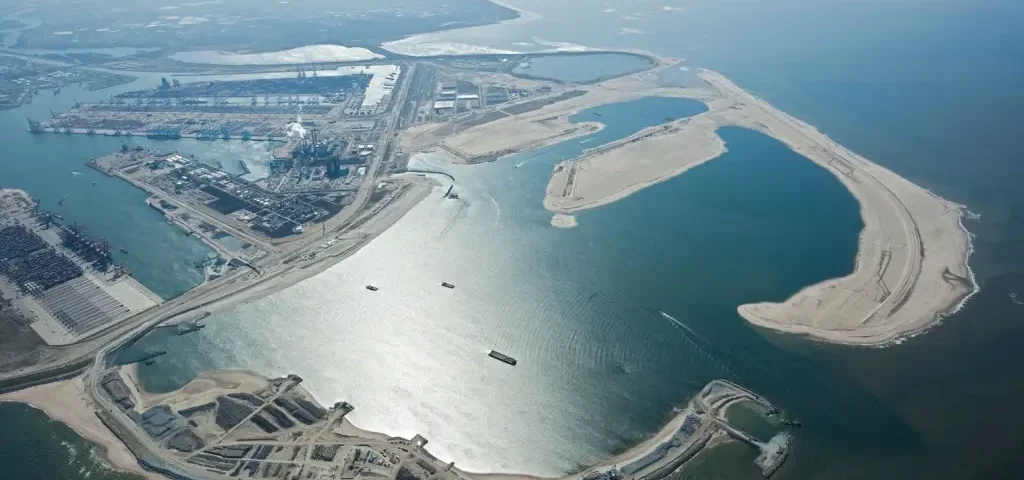By PortEconomics member and Port Strategy Analyst, Peter de Langen
The energy and raw materials transition, critical for achieving a sustainable and (more) circular economy, creates a huge demand for new private investments in ports, in activities like production, assembly, storage and maintenance of offshore windmills, hydrogen plants to convert sustainable energy in hydrogen and ammonia, plants for biofuels and circular recycling and production activities.
Many ports struggle with land availability, especially in advanced economies, in which port expansion projects more or less by definition are ‘contested projects’. Relatively small expansion projects may be feasible, but I wonder whether there is a case for some well-located new ‘port industrial islands’.
Such islands may take the same of real islands, where offshore wind is converted into hydrogen and ammonia, and these are used in downstream production activities. But ‘islands’ can also be thought of in more metaphorical terms: areas created specifically for port-industrial activities without residents/urban areas in the vicinity. Even though Maasvlakte 2 is not a true ‘island’ it can be regarded as an island in this sense. And while there initially was a lot of debate about whether it was needed in the first place, in hindsight, a larger Maasvlakte would have been instrumental in speeding up the sustainability transition. The surge of sustainable investments in (somewhat) remote ports such as Raahe, Groningen and Huelva also may be explained because they can be considered as ‘port industrial islands’ where land for industrial activities is still available.
In some countries there may be an opportunity space to develop true new port industrial islands, that also may be of value in coastal protection given rising water levels, in other countries there may be a need to improve regulatory frameworks and policies to secure existing ports can operate as such ‘islands’ in an otherwise increasingly nuisance free service economy.
First published @PortStrategy












